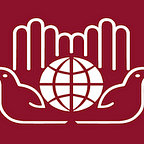IIHA Contributes to New University of Groningen Report: Blockchain for Sustainable Development Goals
New York — The United Nations Sustainable Development Goals (SDGs) have opened up new opportunities and challenges for humanitarians to implement innovative solutions to problems hindering the development and opportunities for millions of people. Emerging blockchain technology provides new tools for local empowerment and ownership of such solutions among crisis-affected communities.
Amidst humanitarian crises increased vulnerabilities present increased risks. Giulio Coppi, IIHA Humanitarian Innovation Fellow, argues that humanitarian blockchain innovation initiatives must follow a design and implementation framework rooted in data ethics.
One month after last year’s Humanitarian Blockchain Summit at Fordham University, Coppi shared these and other findings from the Summit at the University of Groningen’s Blockchain for Sustainable Development Goals workshop. This interdisciplinary workshop brought together 25 blockchain specialists from the development and humanitarian fields to discuss the possibilities and risks of using blockchain technology to address the SDGs.
Participants aimed to further explore the application of blockchain technology in sustainable development and humanitarian innovation. The workshop’s report explores further possibilities and limitations for blockchain technology in humanitarian intervention.
Blockchain is a decentralized, peer-to-peer network that can ensure greater ensure transparency and accountability when making transactions or storing information. In humanitarian action, positive uses of blockchain technology may include distributing and tracing financial aid to beneficiaries or managing identities of displaced persons.
In developing blockchain frameworks, the report explains, “international partners have an important role to play as facilitators, especially when local conditions are often too sensitive to allow for a safe ‘clinical trial’ phase for humanitarian solutions,” warning that the involvement of international partners should not be a default model.
However, most blockchain innovations remain in the conceptual stages. Coppi cautioned participants of the dangers of “pilotitis”, lamenting the short-term nature of many humanitarian innovations. When pilot projects are conditional to a specific grant or linked to an individual context they often provide no blueprint to continue after the initial enterprise ends.
Despite the groundbreaking potential of blockchain solutions in humanitarian action, there are obvious limitations. Many humanitarians see the potential for blockchain solutions to replace entire existing systems, making small-scale pilot programs short-sighted in comparison to the long-term goals of these projects. Furthermore, current technological inhibitions exist in countries with underdeveloped energy infrastructure and internet instability.
On 7 December 2018, IIHA will be hosting its second Humanitarian Blockchain Summit, which continues its exploration into the potential uses of blockchain innovations in humanitarian action.
Rachel Recker, IIHA Communications Intern
Media and Partnership Contacts:
Giulio Coppi
IIHA Humanitarian Innovation Fellow
Angela Wells
IIHA Communications Officer
